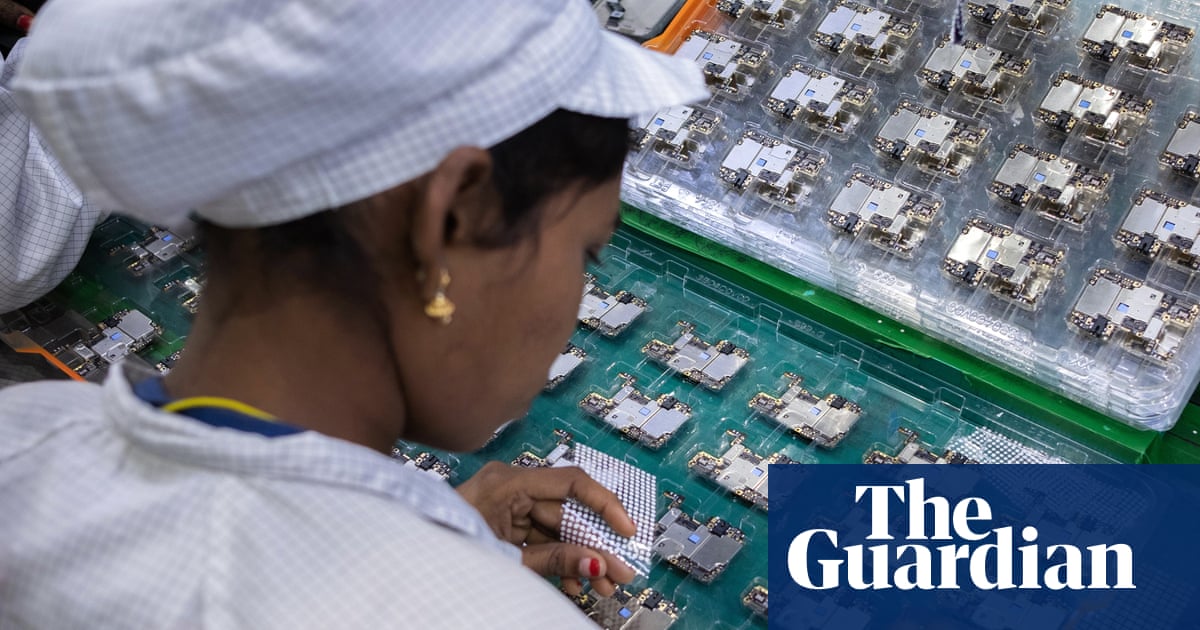Donald Trump has threatened to impose a 25% tariff on iPhones if they are not made in the United States, as he stepped up the pressure on Apple to build its signature product in America.
The US president caused a pre-trading dip in Apple shares with a post on the Truth Social platform stating that iPhones sold inside the US must be made within the country’s borders.
Trump said in the post: “I have long ago informed Tim Cook of Apple that I expect their iPhones that will be sold in the United States of America will be manufactured and built in the United States, notIndia, or anyplace else. If that is not the case, a Tariff of at least 25% must be paid by Apple to the US.”
Apple shares dropped 2.5% in premarket trading on Trump’s comments, dragging down US stock index futures.
Trumpalarmed Apple investors last monthwith a series of escalating tariff announcements on goods from China, where the majority of iPhones are assembled, whichratcheted up to total 145%. A couple of days later, however, the administration announced anexemption for smartphones and computers.
Soon afterwards, it was reported that Apple was planningto switch assembly of all iPhones for the US market to Indiain a bid to swerve the impact of a China trade war. The $3tn (£2.2tn) company is secretive about details of its production processes but analysts estimate that about 90% of its iPhones are assembled in China.
According to the Financial Times, Apple is considering sourcing from India the more than 60m iPhones sold in the US annually by the end of 2026. This would require more than doubling iPhone assembly in India.
Sign up toBusiness Today
Get set for the working day – we'll point you to all the business news and analysis you need every morning
after newsletter promotion
Trump rebuked the tech company and its chief executive, Tim Cook, earlier this month over the switch. “I had a little problem with Tim Cook,” the president said, adding: “I said to Tim … we’ve treated you really good, we’ve put up with all the plants that you’ve built inChinafor years, now you got to build [for] us. We’re not interested in you building in India, India can take care of themselves … we want you to build here.”
